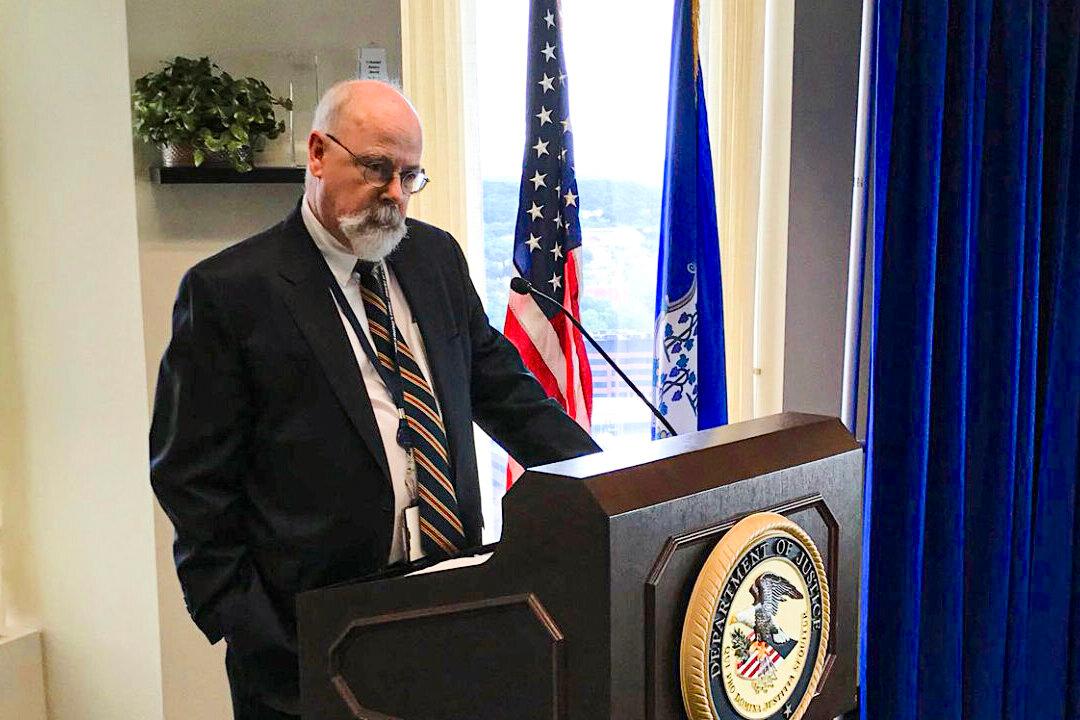Cases handled by special counsel John Durham have produced a flurry of notable discoveries that shed more light on the sprawling yearslong investigation. Durham so far has three indictments and one guilty plea under his belt, with some indications that there may be more in the pipeline.
Durham was tasked around March-May 2019 with reviewing the 2016-2017 FBI investigation of alleged nefarious ties between candidate and later President Donald Trump and Russia. In October 2020, then-Attorney General William Barr appointed Durham a special counsel. In February 2021, Durham resigned his position as a federal prosecutor after 35 years with the Department of Justice (DOJ), where he handled some of the most prominent investigations of FBI misconduct. At age 72, his current job may just be the last chapter and culmination of his career.





